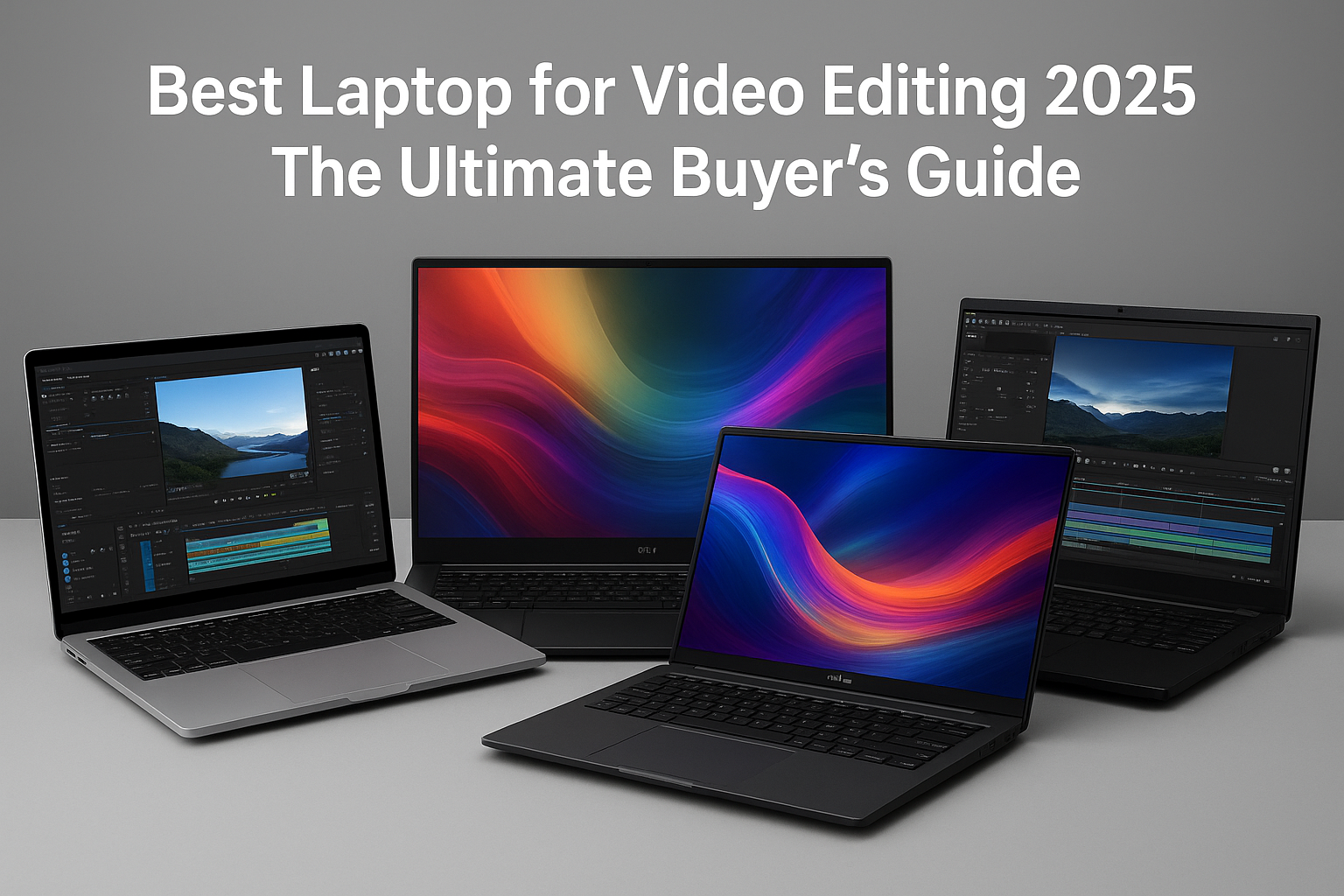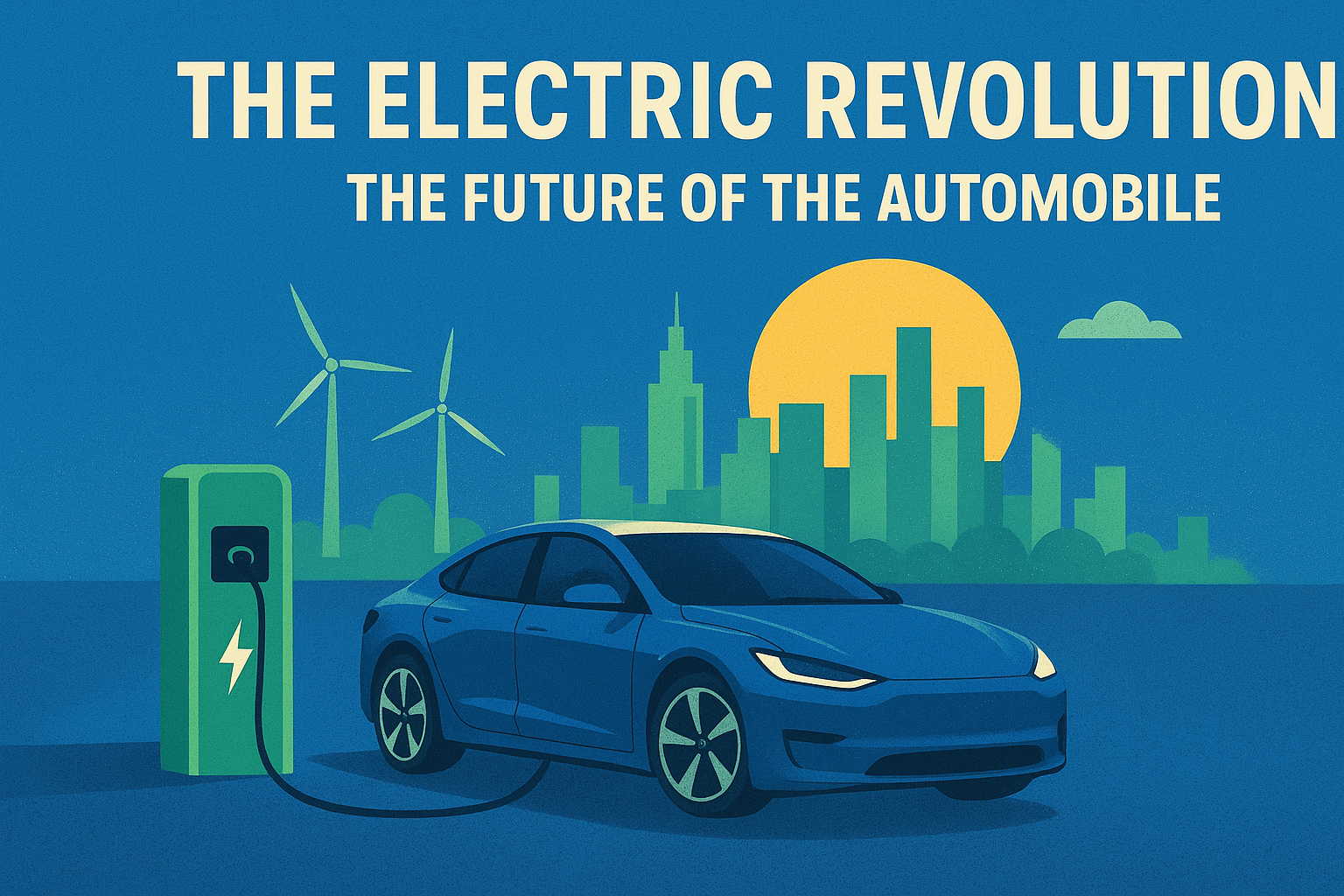Best Laptop for Video Editing 2025: The Ultimate Buyer’s Guide
Introduction
Video editing has transformed from a niche profession into a mainstream skill. Whether you are a YouTuber, filmmaker, social media content creator, or a professional editor working on feature films, having the right laptop can make or break your workflow. In 2025, the landscape of creative laptops has become even more exciting. With the rise of AI-powered chips, ultra-efficient processors, OLED and mini-LED displays, and blazing-fast storage solutions, laptops now rival desktop workstations in terms of performance.
But here’s the problem: not every laptop labeled “powerful” is actually suitable for video editing. A gaming laptop may boast strong graphics, but if it lacks color accuracy or thermal stability, it won’t serve well in professional video production. Similarly, a thin ultrabook might look appealing but won’t survive rendering long 4K projects. That’s why choosing the best laptop for video editing in 2025 requires careful balance between performance, portability, and display quality.
In this guide, we’ll cover everything you need to know before buying, explore the top recommended laptops for video editing in 2025, and help you pick the one that matches your workflow and budget.
What to Look for in a Video Editing Laptop (2025 Edition)
Before diving into specific models, let’s break down the essential features that matter the most:
1. Processor (CPU)
The processor is the brain of your laptop. For smooth editing in Premiere Pro, Final Cut Pro, or DaVinci Resolve, you need a chip with multiple performance cores.
- Best options in 2025: Apple M4 Pro/Max, Intel Core Ultra 9, AMD Ryzen AI 9 HX series.
- Why it matters: Faster CPU = quicker renders, real-time preview, and smoother timeline scrubbing.
2. Graphics Card (GPU)
Modern video editing software is GPU-accelerated. A strong GPU speeds up rendering, color grading, and effects.
- Best options in 2025: NVIDIA RTX 4070–5090 series, Apple integrated GPUs, AMD Radeon AI series.
- Tip: If you work with 8K video or heavy VFX, prioritize a stronger GPU.
3. RAM
Video editing eats memory. A laptop with less RAM will stutter during multitasking.
- Minimum: 16GB (suitable for casual editors).
- Recommended: 32GB (ideal for 4K/6K editing).
- High-end: 64GB+ (for professionals editing 8K and beyond).
4. Storage
Fast storage is a must. Traditional HDDs are outdated; SSDs or NVMe drives are standard in 2025.
- Recommended: At least 1TB NVMe SSD.
- Bonus: Some laptops offer dual slots for expanding storage.
5. Display
Editors spend hours staring at screens. A high-quality display ensures accurate colors and less eye strain.
- Look for: OLED or mini-LED, 3K–4K resolution, 100% DCI-P3 color gamut, HDR support.
- Size sweet spot: 15–16 inches (balance between portability and workspace).
6. Battery Life
Editing is resource-intensive, so battery life often suffers. Choose wisely if you plan to work on the go.
- MacBooks: Known for efficiency.
- Windows laptops: Vary; some offer 8–12 hours, while others drain in 4–6.
7. Ports & Connectivity
Editors constantly use external drives, cameras, and monitors. Look for:
- Thunderbolt 4 / USB-C
- HDMI 2.1
- SD card slot
- Wi-Fi 7 for faster file transfers.
8. Build & Thermals
Video editing heats up laptops quickly. A solid thermal design ensures your CPU/GPU don’t throttle under pressure. Metal builds with vapor chambers or advanced cooling fans are preferred.
Best Laptops for Video Editing in 2025
Now, let’s look at the top performers of 2025 that combine these elements and stand out for video editors.
1. Apple MacBook Pro 16-inch (M4 Pro/Max)
Why It’s Great
Apple continues to dominate the creative industry. The new M4 Pro and M4 Max chips bring jaw-dropping performance with incredible efficiency. Combined with the Liquid Retina XDR mini-LED display, it remains the gold standard for professional editors.
Key Specs
- CPU: Apple M4 Pro / Max
- GPU: Integrated Apple GPU (up to 40 cores)
- RAM: 16GB – 64GB unified memory
- Storage: Up to 8TB SSD
- Display: 16.2-inch, 3456 x 2234 mini-LED, 120Hz ProMotion
- Battery Life: 18–20 hours
Pros
- Best-in-class battery life
- Ultra-smooth performance in Final Cut, Premiere, and DaVinci
- Exceptional HDR and color accuracy
- Silent even under heavy load
Cons
- Expensive
- Limited gaming performance compared to Windows
Best For: Professionals who need reliability, battery, and a display perfect for color grading.
2. Samsung Galaxy Book4 Ultra
Why It’s Great
Samsung is making serious waves in the creative laptop space. The Galaxy Book4 Ultra combines a stunning 16-inch AMOLED display with Intel’s Core Ultra 9 processor and NVIDIA RTX GPUs.
Key Specs
- CPU: Intel Core Ultra 9 185H
- GPU: NVIDIA RTX 4070 Laptop GPU
- RAM: Up to 32GB
- Storage: Up to 2TB SSD
- Display: 16-inch AMOLED 3K
- Battery: 12–14 hours
Pros
- Vibrant AMOLED screen with perfect blacks
- Lightweight for its power (just 4.1 lbs)
- Strong AI-powered performance
- Excellent connectivity
Cons
- Slightly pricey for Windows
- Preloaded Samsung software
Best For: Editors who want a portable Windows alternative to MacBook with a superior AMOLED display.
3. Asus ProArt Studiobook P16 (2025 Edition)
Why It’s Great
Designed specifically for creators, the Asus ProArt Studiobook series offers high-end GPUs and OLED panels calibrated for accuracy. The 2025 P16 model brings in Ryzen AI processors and RTX 5070 GPUs.
Key Specs
- CPU: AMD Ryzen 9 AI HX 370
- GPU: NVIDIA RTX 5070
- RAM: Up to 64GB
- Storage: 2TB SSD
- Display: 16-inch 3K OLED (Pantone validated)
- Battery: 10–12 hours
Pros
- Professional-grade color accuracy
- High upgrade potential (RAM and storage)
- Excellent thermal cooling
- Creator-focused software bundle
Cons
- Bulkier than ultrabooks
- Fans get loud under load
Best For: Professional editors working on color grading, animations, and 8K projects.
4. Dell XPS 16 (9640)
Why It’s Great
Dell’s XPS line remains one of the most reliable for both professionals and casual creators. The 2025 Dell XPS 16 offers sleek design, a 4K OLED display, and balanced performance.
Key Specs
- CPU: Intel Core Ultra 7/9
- GPU: NVIDIA RTX 4060 / 4070
- RAM: Up to 64GB
- Storage: Up to 2TB SSD
- Display: 16.3-inch 4K OLED HDR
- Battery: 10–13 hours
Pros
- Premium aluminum design
- Stunning OLED display
- Long battery for a Windows laptop
- Good port selection
Cons
- Expensive upgrades
- Runs warm under extreme loads
Best For: Professionals wanting a balance of style, portability, and power.
5. MSI Creator A16 AI+
Why It’s Great
MSI has targeted creators with affordable yet powerful laptops. The Creator A16 AI+ offers Ryzen AI CPUs with RTX 4060/4070 graphics at a competitive price.
Key Specs
- CPU: AMD Ryzen 9 HX AI
- GPU: NVIDIA RTX 4060 / 4070
- RAM: 16GB – 32GB
- Storage: 1TB SSD
- Display: 16-inch QHD+ IPS
- Battery: 6–8 hours
Pros
- Excellent value for specs
- Solid editing performance
- Good cooling system
- Affordable compared to MacBook Pro
Cons
- Mediocre battery life
- Display not as color-accurate as OLED
Best For: Budget-conscious editors who want high performance without paying premium prices.
6. Razer Blade 16 (2025)
Why It’s Great
Razer’s Blade laptops are gaming-first but double as editing beasts. The 2025 Razer Blade 16 offers RTX 4090 graphics with dual-mode displays (4K Creator Mode or 240Hz Gaming Mode).
Key Specs
- CPU: Intel Core Ultra 9
- GPU: NVIDIA RTX 4080 / 4090
- RAM: Up to 64GB
- Storage: Up to 4TB SSD
- Display: 16-inch mini-LED dual-mode (4K or 240Hz QHD)
- Battery: 8–10 hours
Pros
- Extreme GPU power
- Gorgeous mini-LED display
- Thin, premium build
- Great for gaming + editing combo
Cons
- Very expensive
- Runs hot under heavy load
Best For: Editors who also game or use GPU-heavy workflows like 3D rendering.
Comparison Table (2025)
| Laptop | CPU | GPU | RAM | Display | Battery | Best For |
|---|---|---|---|---|---|---|
| MacBook Pro 16 (M4) | Apple M4 Pro/Max | Apple GPU | Up to 64GB | 16.2″ mini-LED | 18–20 hrs | Pro editors needing reliability |
| Samsung Galaxy Book4 Ultra | Intel Ultra 9 | RTX 4070 | 32GB | 16″ AMOLED 3K | 12–14 hrs | OLED lovers, Windows users |
| Asus ProArt Studiobook P16 | Ryzen 9 HX 370 | RTX 5070 | 64GB | 16″ 3K OLED | 10–12 hrs | Professional creators |
| Dell XPS 16 (9640) | Intel Ultra 9 | RTX 4070 | 64GB | 16.3″ OLED | 10–13 hrs | Style + performance |
| MSI Creator A16 AI+ | Ryzen 9 HX AI | RTX 4060 | 32GB | 16″ QHD+ IPS | 6–8 hrs | Budget editors |
| Razer Blade 16 | Intel Ultra 9 | RTX 4090 | 64GB | 16″ mini-LED | 8–10 hrs | Gaming + editing |
FAQs – Best Laptop for Video Editing 2025
Q1. Is MacBook still the best choice for video editing in 2025?
Yes, the MacBook Pro M4 remains unmatched in terms of display quality, battery efficiency, and seamless performance across editing software.
Q2. Do I need 32GB RAM for video editing?
For casual 1080p or light 4K editing, 16GB is fine. For professional 4K/8K editing with effects, 32GB or more is highly recommended.
Q3. Can gaming laptops be used for editing?
Yes. Gaming laptops with RTX GPUs perform well in editing but may lack color-accurate displays and longer battery life.
Q4. What is the most budget-friendly laptop for editing in 2025?
The MSI Creator A16 AI+ offers the best value without breaking the bank, though it compromises on display quality and battery.
Q5. Which laptop is best for color grading?
The Asus ProArt P16 and MacBook Pro 16 are the best options due to their calibrated OLED/mini-LED displays.
Final Thoughts
The best laptop for video editing in 2025 depends entirely on your needs. If you value battery life and premium workflow—choose the MacBook Pro M4. If you want Windows with an OLED display, go for the Samsung Galaxy Book4 Ultra. For color perfectionists, the Asus ProArt P16 is unmatched. Budget creators should look at MSI Creator A16 AI+, while gamers who edit too will love the Razer Blade 16.
At the end of the day, every laptop on this list is capable of handling demanding editing projects. The right choice comes down to your budget, ecosystem preference (Mac vs Windows), and workflow style.



